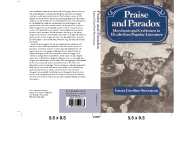Book contents
- Frontmatter
- Contents
- Acknowledgements
- Prefatory note
- Introduction: praise and paradox
- PART I ELIZABETHAN POPULAR LITERATURE
- 1 Elizabethan popular literature and its economic context
- 2 The popular Elizabethan authors
- 3 The popular Elizabethan audience
- PART II THE BUSINESSMAN IN ARMOUR
- PART III THE GENTLE CRAFTSMAN
- APPENDICES
- Index
- Past and Present Publications
2 - The popular Elizabethan authors
Published online by Cambridge University Press: 29 October 2009
- Frontmatter
- Contents
- Acknowledgements
- Prefatory note
- Introduction: praise and paradox
- PART I ELIZABETHAN POPULAR LITERATURE
- 1 Elizabethan popular literature and its economic context
- 2 The popular Elizabethan authors
- 3 The popular Elizabethan audience
- PART II THE BUSINESSMAN IN ARMOUR
- PART III THE GENTLE CRAFTSMAN
- APPENDICES
- Index
- Past and Present Publications
Summary
Looking across the spectrum of prominent Elizabethan authors, one can see that several of them were the sons of merchants or craftsmen. Marlowe, for example, was the son of a shoemaker; Ben Jonson, the stepson of a brick-layer; Shakespeare, the son of a glover; Lodge, the son of a grocer who became lord mayor of London; and Munday, Chettle and Peele were, respectively, the sons of a draper, a dyer, and a salter. The familiarity of the backgrounds of these men led Louis Wright to imply that the majority of Elizabethan authors came from middle-class families; and his word on the subject has been accepted as gospel in later works on literary history, for the simple reason that it is the only word. This interpretation is, however, a by-product of the Marxist model of pre-industrial society – a model long since proved to be inaccurate. It is, furthermore, extremely misleading, for it encourages scholars to assume that Elizabethan authors came from like backgrounds, received roughly comparable educations, and adopted one profession – writing. No assumption could be further from the truth. Elizabethan popular authors emerged from a wide variety of backgrounds and adopted a wide variety of professions. While their educations were alike in some respects (for after a Tudor youth learned to read English, he embarked on a study of the classics that lasted until he left school), they differed greatly in thoroughness and in length.
- Type
- Chapter
- Information
- Praise and ParadoxMerchants and Craftsmen in Elizabethan Popular Literature, pp. 40 - 50Publisher: Cambridge University PressPrint publication year: 1984

